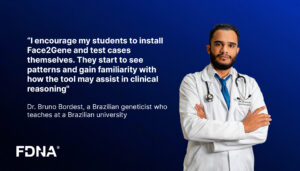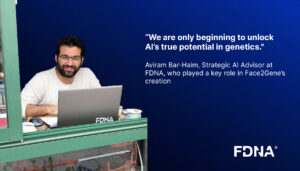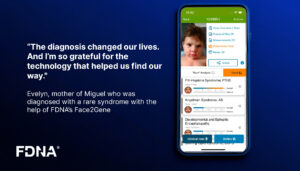August 30, 2018
Boston Globe
“Of the more than 7,000 known rare diseases, up to half are believed to cause changes to the shape of the face or skull. Many conditions are obscure, making them challenging for even the most seasoned specialist to pinpoint. Experts say it typically takes parents of children with rare genetic diseases roughly seven years to get the correct diagnosis. That’s why FDNA created Face2Gene. Medical geneticists around the world began using the app, uploading pictures of patients.”
The article highlights Face2Gene, a breakthrough app leveraging facial recognition technology to expedite the diagnosis of common genetic disorders. Powered by advanced machine learning algorithms, Face2Gene analyzes facial features to identify syndromes such as Down syndrome and Noonan syndrome with remarkable accuracy. This innovative decision support tool is revolutionizing the field of genetic diagnostics, providing clinicians with a quick, non-invasive method to pinpoint potential genetic conditions. By enhancing early detection and facilitating targeted treatment, Face2Gene represents a significant advancement in the management of common genetic disorders, improving patient outcomes and transforming clinical practice.


